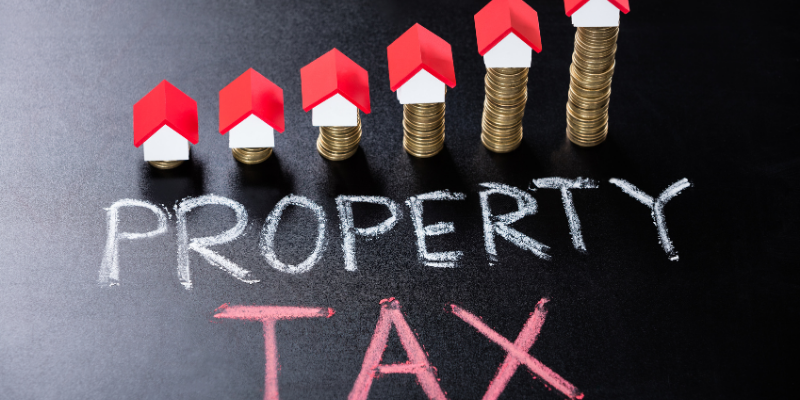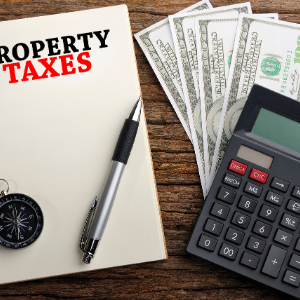
Understanding Property Tax Rates in Fort Worth, TX: A Comprehensive Guide
Understanding property tax rates in Fort Worth, TX, is critical for homeowners and real estate investors who want to make informed financial decisions. Property taxes in Fort Worth are determined by a property’s assessed valuation and the exact tax rate established by various local taxing agencies, such as the city government, county authority, school districts, and other special districts.
These organizations assess their budgetary requirements each year and set tax rates accordingly. The Tarrant Appraisal District is critical in determining property values in Fort Worth, assessing properties annually based on current market conditions.
Homeowners and investors should be aware that changes in market trends or local government budgets can substantially influence their property taxes. Homestead or elder exemptions might potentially provide relief from high tax rates.
And if rising property taxes are pushing you to rethink your situation, Texas Cash House Buyer can help you sell your Fort Worth house fast without the headaches of traditional listings—no repairs, no showings, and no drawn-out negotiations. They also work with homeowners in Arlington, Mansfield, and Burleson who need to sell quickly and move on.
Individuals understanding how these components interact within Fort Worth’s property tax system can better predict spending and plan strategically when purchasing new properties or managing existing investments.
How Property Taxes Are Calculated in Fort Worth, TX

Understanding property tax calculation is critical for Fort Worth, Texas, homeowners and real estate investors. The Tarrant Appraisal District uses current market conditions to assess a property’s appraised value.
This appraisal is critical because it is the foundation for computing property tax rates in Fort Worth. Once the property’s appraised value has been determined, various local taxing entities, such as school districts, city governments, and special districts that provide water or hospital services, apply their respective tax rates.
These prices are indicated in dollars per $100 assessed value and can vary significantly based on location and available services. Homeowners may be eligible for homestead or senior citizen exemptions, which can reduce their taxable value.
If these calculations reveal your tax bill is becoming unmanageable, Texas Cash House Buyer is ready to step in. Whether you’re looking to sell your home for cash in Fort Worth, buy home for cash in Arlington, or offload an investment property in Weatherford, they make the process fast and stress-free.
Key Factors Influencing Property Tax Rates in Fort Worth, TX
Several significant factors determine property tax rates in Fort Worth, TX, affecting homeowners and real estate investors. A property’s assessed value is a substantial determinant that local appraisal districts reassess annually based on market conditions.
Tax rates may also rise as property prices rise in response to increased demand or local improvements. Another important consideration is the tax rate established by various taxing authorities in Fort Worth, such as school districts, city governments, and special assessment districts.
These organizations assess their revenue requirements each year and alter their rates accordingly. Economic factors are also important; during economic development or recession periods, modifications may be made to account for budgetary changes.
State legislative initiatives, such as modifying laws or imposing rate limitations, can also impact local property taxes. Furthermore, exemptions for specific categories, such as homestead or senior citizen status, can reduce taxable income for eligible persons.
Understanding these factors allows homeowners and investors in Fort Worth to predict probable annual property tax obligation changes.
Recent Changes to Property Tax Legislation in Fort Worth, TX
In recent years, Fort Worth, TX, has experienced substantial changes in property tax policy that directly influence homeowners and real estate investors. These improvements address the fast-changing real estate market and assure fair tax assessments throughout the city.
One of the most significant changes is that the Tarrant Appraisal District’s appraisal processes will be modified to represent current market values better, affecting residential and commercial property tax liabilities. Furthermore, new limits on property tax growth have been imposed to shield homeowners from excessive annual increases, which is especially useful in neighborhoods seeing rapid appreciation.
The legislative amendments also contain measures for improved transparency and taxpayer participation in tax-rate-setting decision-making procedures. The Fort Worth city government has undertaken several reforms to balance fiscal prudence with citizens’ ability to manage their financial commitments successfully.
These new legislative changes are crucial for anyone involved in Fort Worth real estate, whether buying their first house or diversifying their investment portfolio.
Comparing Property Tax Rates Across Different Neighborhoods in Fort Worth, TX
When comparing property tax rates in different communities in Fort Worth, TX, homeowners and real estate investors must consider how these differences affect their financial planning. Property tax rates in Fort Worth vary greatly by neighborhood due to factors such as school district budget requirements, municipal services, and local infrastructure demands.
For example, communities with higher property prices frequently have higher tax rates to fund the quality of schools and other services that attract inhabitants. Conversely, neighborhoods with lower property values may have lower tax rates but fewer services or facilities.
Prospective buyers and investors must thoroughly examine these differences since they affect the cost of purchasing a home and its long-term investment value. Understanding how each neighborhood’s tax rate compares to overall living expenses will help you decide where to invest or settle in Fort Worth’s diverse real estate market.
Strategies for Reducing Your Property Tax Bill in Fort Worth, TX
Homeowners and real estate investors in Fort Worth, TX, can use various strategies to minimize their property tax burden. One of the most successful ways is to file a property tax protest, which challenges the assessed value of their home if they believe it is incorrectly high.
This entails gathering evidence, such as recent sales data for comparable properties, to support your claim. Furthermore, it is critical to ensure that you take advantage of all applicable exemptions; homestead and over-65 exemptions can dramatically reduce your tax liability.
Another method is to contact the Tarrant County Appraisal District to stay current on assessment procedures and any changes to property tax legislation that may affect you. Regularly reviewing and understanding your property’s appraisal report enables you to identify discrepancies early on.
Engaging a professional property tax expert can also provide significant insights, aid in navigating complex appeals processes, and identify additional savings potential. Homeowners and investors in Fort Worth can better control their property tax bills by remaining proactive and informed about these measures.
Impact of Property Values on Tax Rates in Fort Worth, TX

Property tax rates in Fort Worth, TX, are heavily determined by the assessed value of properties in the city. As property values rise, homeowners and real estate investors may face higher tax bills due to higher assessments.
The Tarrant Appraisal District determines a residence’s market value, which Fort Worth uses to compute property taxes. As demand for Fort Worth real estate rises, so do property values and related tax responsibilities.
Homeowners and investors must monitor local real estate trends and appraisal district assessments to understand their potential tax liability. Furthermore, neighborhood development and infrastructure changes can impact property prices and, as a result, tax rates.
Understanding these dynamics helps residents anticipate changes in their financial responsibilities associated with property ownership in Fort Worth.
Understanding Exemptions and Deductions for Property Taxes in Fort Worth, TX
Understanding exemptions and deductions for property taxes in Fort Worth, TX, can significantly affect the financial responsibilities of homeowners and real estate investors. Various property tax exemptions are available in Fort Worth that can reduce the taxable value of your property, thereby lowering your overall tax burden.
The most prevalent exemption is the homestead exemption, which applies to homeowners who live in their principal dwelling. This exemption reduces assessed value, resulting in significant savings on property taxes.
Senior citizens 65 and older may also be eligible for an additional exemption, which reduces their taxable income even further. Individuals with disabilities and veterans in Fort Worth have access to exemptions tailored to their circumstances.
Real estate investors may not benefit directly from these homeowner-exclusive concessions, but they should be aware of them when contemplating investment properties with existing tenants or potential resales. Understanding how these exemptions function within Fort Worth’s municipal tax legislation is critical for anybody interested in property ownership or investment, as it enables better financial planning and maximizes possible savings.
How New Developments Affect Property Taxes in Fort Worth, TX
New developments in Fort Worth, Texas, can significantly impact property tax rates for homeowners and real estate investors. Property values often rise when the city grows due to the construction of new residential communities, business establishments, and infrastructure upgrades.
Higher property values frequently result in higher property tax assessments, as taxes are calculated based on a property’s assessed value. Furthermore, as new developments improve neighborhood amenities and public services such as schools and parks, they attract more residents and companies, driving up demand and property values.
This development cycle and growing demand can generate swings in the effective tax rate as the city adjusts its budget to fulfill infrastructure needs. Due to these developments, homeowners may find their properties appreciating faster than intended. At the same time, real estate investors may regard shifting tax requirements as an opportunity or a challenge in optimizing returns.
Understanding how new projects affect local property taxes is vital for anyone in Fort Worth’s real estate market.
What Is the Property Tax Rate in Fort Worth, TX?

Fort Worth’s energetic property market means accurate tax information can make or break your budget, whether you’re a homeowner or an investor. The overall property tax rate stems from several authorities: the city, Tarrant County, assorted school districts, and any special districts that may apply.
For 2023, the overall tax rate in Fort Worth averages 3.00% of the property’s assessed value. Because tax authorities sometimes overlap—such as when a house lies in more than one school district or crosses a special assessment border—the individual rate can shift based on the property’s exact address and circumstances.
Those differences matter. A slight change can affect your cash flow, especially on investment properties where every dollar of either income or expense counts. Even homeowners shopping for a primary residence should consider the rate that applies to the specific location they’re eyeing, since it can nudge total monthly housing costs in one direction.
Finally, it’s wise for anyone owning or thinking of owning in Fort Worth to track any shifts in city or county budgets and school district elections, since decisions made on the budget side can trickle down to new tax rates that hit wallets a year or two later.
What City in DFW Has the Highest Property Taxes?
For anyone eyeing property purchases or homeownership in the DFW region, knowing the city with the steepest property taxes is essential for accurate budgeting. At times, Fort Worth emerges at the top of the metroplex regarding the tax burden faced by property owners.
Elevated tax rates like the ones Fort Worth occasionally shows can hit homeowners and investors hard, steering them toward or away from specific neighborhoods. A patchwork of factors—from city budgets and public school district needs to the costs of municipal services—shapes the rates seen in Fort Worth.
Future investors or homeowners in the city will need to fold these higher taxes into their financial models to reach a complete picture of the returns on investment or the total expense of living there. By pinpointing the tax rules in Fort Worth, buyers can draw sharper comparisons with neighboring DFW cities, whether Dallas, Arlington, or others, and position themselves for more intelligent decisions.
Why Are Tarrant County Property Taxes So High?
Tarrant County property taxes often feel steep for residents, and several intertwined reasons explain that. First, unrelenting population growth and urban expansion, especially around Fort Worth, push the need for more public services and infrastructure. From updated schools and broader public transit corridors to e-cycles of fire, police, and health services, the checklist keeps growing, and the public purse waits for more dollars.
Each county’s taxing body—school boards, city halls, hospital authorities, and the community college district—sits at the budget table and picks a tax rate to fill its section. The math is simple: a rising number of rate-setters times an increasing demand for services usually equals a rising total tax bill. And just when it looks tame, rapidly appreciating property values kick in, driving appraisal amounts higher even when the underlying tax rates hold steady.
Homeowners and investors focusing on Fort Worth and the wider county must keep a sharp pencil on the district line. Every new subdivision and commuter lobby adds to the formula, and the compass needle on appraisals may tilt more than once in a given tax year.
At What Age Do You Stop Paying Property Taxes in Texas?
Knowing when property taxes might lessen is key for homeowners across Texas—especially in Fort Worth. There’s no fixed age at which tax bills suddenly end, but the state offers generous exemptions that lower the costs, especially for older Texans.
Anyone who turns 65 can apply for the Over-65 Homestead Exemption. This freezes school district taxes at the amount owed when the exemption is granted and trims the home’s taxable value further. Given Fort Worth’s rising property values, the financial relief is meaningful.
Remember that the exemption doesn’t eliminate the entire tax; it just reduces the school district’s slice of the bill. Savvy homeowners and investors should review the Over-65 exemption alongside any other applicable exemptions—like the Disabled Person Exemption—plus Fort Worth’s local tax rates. This way, you can sharpen personal and investment strategies in a bustling Texas market.
Whether you’re dealing with rising property taxes, facing costly repairs, or simply ready to move on, Texas Cash House Buyer offers a fast, fair, and hassle-free way to sell your home for cash anywhere in Fort Worth and the surrounding DFW area. Curious how we can help? Contact us at (817) 587-8108 today!
Helpful Fort Worth Blog Articles
- Effective Strategies For Selling A Probate House In Fort Worth, TX
- Home Equity Requirements For Selling Your House In Fort Worth, TX
- How to Sell Your House and Continue Living in It: Fort Worth, TX
- Can Medical Bills Take Your House In Fort Worth, Texas
- Successfully Selling Your Home With Tenants In Fort Worth
- Mastering Contingency Home Sales In Fort Worth’s Real Estate Market
- Real Estate Attorney Fees For Selling Your Home In Fort Worth
- How To Successfully Sell A House With Title Issues In Fort Worth, TX
- How to Sell a House with a Squatter in Fort Worth, Texas
- How to Claim Abandoned Property in Fort Worth, TX
- Understanding Fort Worth Property Tax Rates
- Homeowners Insurance Tips For Selling Your Fort Worth, TX, House
- Can An Executor Sell A House During Probate In Fort Worth, TX?

| LEVIES | TAX BASED | TAXATION | TAX PAYMENT | REAL ESTATE TAX | FT WORTH |
| FT WORTH, TX | TARRANT COUNTY, TEXAS | TARRANT COUNTY, TX | ASSESSOR | MORTGAGE | U.S. |
| SMARTASSET | INFORMATION | FINANCIAL ADVISOR | PERCENTAGE | MEDIAN | DALLAS FORT WORTH |
| DALLAS FORT WORTH METROPLEX | FISCAL YEAR | FEEDBACK | IN TARRANT COUNTY | YOUR PROPERTY TAXES |
